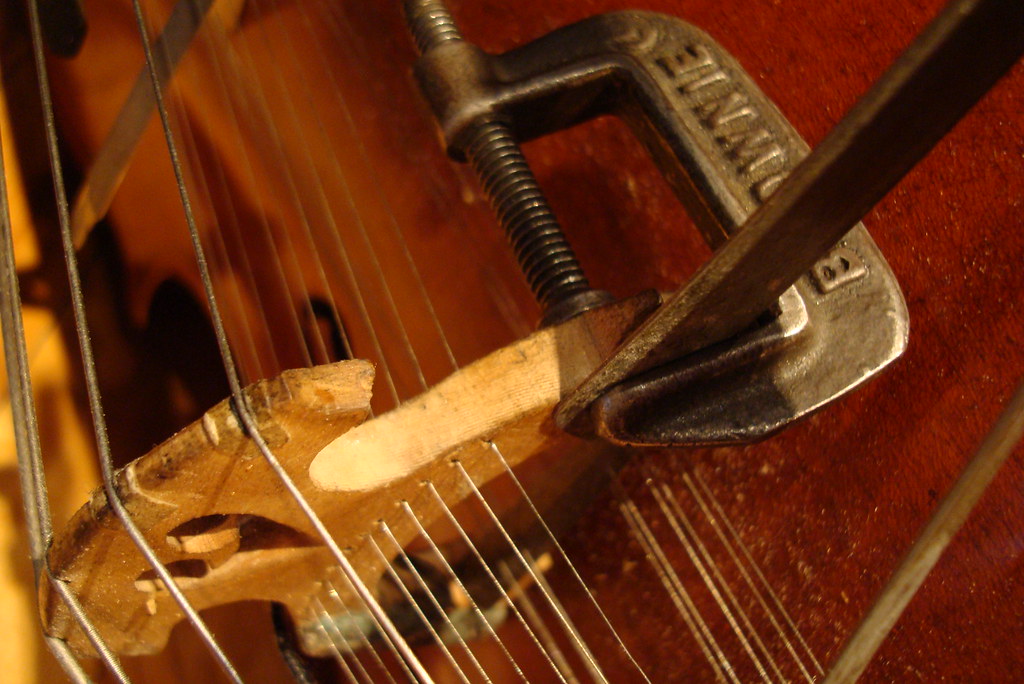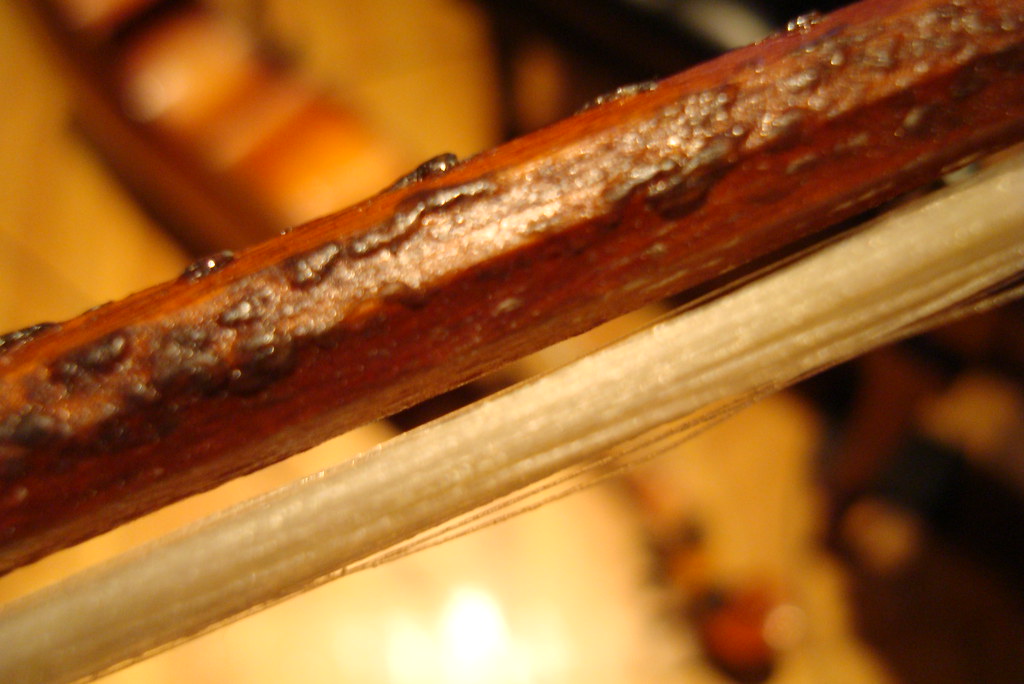Performing electronic music is hard. Not because electronic music itself is hard, but because it's much more entertaining to watch a guitarist than it is to watch someone using a computer.
The other day a trio came to my music class to perform and talk about how they make electronic music. I thought I'd show you some of the "instruments" they use, just so you can see that I really am knee deep in some crazy stuff.
One of them uses cello that has a pickup at the bridge (it's not too unusual to amplify a cello, since it's a relatively quiet instrument for its size). He's also clamped a thick strip of metal to the bridge and will sometimes bow the metal just like a string for some very weird resonances.
The bow he uses has rosin not only on the hair of the bow, but also on the stick (ew?) Sometimes he'll bow the cello with the stick and not the hair... sometimes he'll scrape the frog of the bow against the cello's frame.
He also, using internal feedback from an open circuit board, plays the mutilated speakers sitting in front of him. In the video, he shares the idea that he wants his music to be very unpredictable, so that not even he knows what he will play. This ideology is in such stark contrast to traditional classical musicians (of which I may be considered one), who practice for endless hours in hopes to make very calculated and reproducible music.
One of the other performers uses all types of percussion instruments hooked up to electronics, and the other plays a small "instrument" containing a streamlined version of linux stuffed into a midi controller box. Electronic music ftw.






